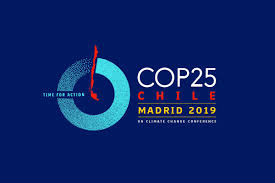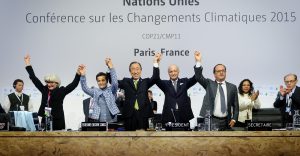 So President Trump and his minions were extremely active this past week. The President, as Bully in Chief, and his people are still going strong, especially when it comes to trade and tariffs. But there were other areas that this President and his administration pushed forward on and warrant a look. So much (re)gressive action is being taken that it is hard to keep up with it all. It is exhausting.
So President Trump and his minions were extremely active this past week. The President, as Bully in Chief, and his people are still going strong, especially when it comes to trade and tariffs. But there were other areas that this President and his administration pushed forward on and warrant a look. So much (re)gressive action is being taken that it is hard to keep up with it all. It is exhausting.
Starting at home you could not avoid the critical action being directed by the Head of the EPA, Lee Zeldin. As described by Maxine Joselow and Lisa Friedman at the NYTimes are Zeldin’s efforts to roll back the EPA underpinnings to fighting climate change – the ‘endangerment finding’. And do notice where Zeldin made his announcement:
“Lee Zeldin, the administrator of the Environmental Protection Agency, said on Tuesday the Trump administration would revoke the scientific determination that underpins the government’s legal authority to combat climate change.”
“Speaking at a truck dealership in Indianapolis, Mr. Zeldin said the E.P.A. planned to rescind the 2009 declaration, known as the endangerment finding, which concluded that planet-warming greenhouse gases pose a threat to public health. The Obama and Biden administrations used that determination to set strict limits on greenhouse gas emissions from cars, power plants and other industrial sources of pollution.”
“Without the endangerment finding, the E.P.A. would be left with no authority under the Clean Air Act to regulate the greenhouse gas emissions that are accumulating in the atmosphere from the burning of fossil fuels.”
It is a dramatic step. As described by the two reporters:
“The proposal is President Trump’s most consequential step yet to derail federal climate efforts. It marks a notable shift in the administration’s position from one that had downplayed the threat of global warming to one that essentially flatly denies the overwhelming scientific evidence of climate change.”
“It would not only reverse current regulations, but, if the move is upheld in court, it could make it significantly harder for future administrations to rein in climate pollution from the burning of coal, oil and gas.”
“Without the United States working to reduce emissions, it becomes far tougher for the world to collectively prevent average global temperatures from rising by more than 1.5 degrees Celsius, or 2.7 degrees Fahrenheit, above preindustrial levels.”
From current legal actions underway I think there is a reasonable chance that at the Appeal Court level Zeldin’s actions might well be declared illegal but at the ‘Supremes’, it is a hard call.
These actions are potentially devastating but Zeldin’s actions reveal a dramatic alteration in Zeldin’s actions:
“The plan to eliminate the endangerment finding showcases the political evolution of Mr. Zeldin, who for years took moderate positions on climate change and other environmental issues.”
“A former congressman from a coastal community on Long Island that is struggling with rising sea levels linked to global warming, Mr. Zeldin once joined a bipartisan caucus to address climate change. In 2019 he broke with fellow Republicans to vote against an amendment that would have prohibited the E.P.A. from reducing greenhouse gas emissions.”
“An ally of Mr. Trump who prominently defended him during House impeachment hearings, Mr. Zeldin moved to the right on energy and other issues during his unsuccessful bid for governor of New York in 2022.”
“Just weeks after his nomination to lead the E.P.A., Mr. Zeldin declared that he would be “driving a dagger through the heart of climate-change religion” by repealing regulations on greenhouse gas emissions.”
Loyalty has become the sine qua non for Trump folk.
Now on the Trump bullying front both the actions against elite universities and then trade policy actions can’t be outdone.
On the trade front first. There is an explosion of tariffs issued by Trump following an anemic number of successfully reached agreements with the Trump administration. First there was a major ‘agreement’ reached earlier in the week with the EU, its second largest trade partner. The EU agreed to a 15 percent tariff after Trump threatened 30 percent. And, the EU committed to buying more energy from America, and apparently agreeing to buy more AI chips, and to invest $600bn in the U.S. Back to this agreement in a moment.
The new tariff rates established a 10 percent baseline for all imports to the U.S., while setting higher levies on many countries including Syria (41 percent), Laos (40 percent), Switzerland (39 percent), Iraq (35 percent), South Africa (30 percent) and India (25 percent). In addition, Trump imposed various punitive tariffs including a sweeping 50 percent tariff on most goods from Brazil beginning in one week. The U.S. Treasury also announced sanctions on Brazilian Supreme Court Justice Alexandre de Moraes over the trial of former President Jair Bolsonaro for plotting a coup after he lost the presidential election. Trump appears outraged at the actions to punish the former president for his attempted coup. I suspect it brings back memories of his own actions.
In announcing the tariffs, which had been set to take effect on Friday, Mr. Trump invoked Brazil’s prosecution of its former president, Jair Bolsonaro, a Trump ally charged with attempting a coup to remain in power. Mr. Trump has said Mr. Bolsonaro is the victim of a “witch hunt.””
And his animus seemingly is not confined to Brazil. Trump raised tariffs with Canada as pointed out by the Toronto Star’s Raisa Patel and Josh Rubin:
“U.S. President Donald Trump signed an executive order late Thursday hiking tariffs on certain Canadian goods to 35 per cent, with no deal materializing between Ottawa and Washington as the clock ticked towards an Aug. 1 deadline to reach a trade agreement.”
Such a tariff rate would be punishing for sure, but the agreed USMCA exemption allows most cross border exports to cross tariff-free. It is estimated that the exemption covers about 94 percent of the items Canada exports to the U.S.
Now, back to the agreement with the EU for a second look. This agreement – a 15 percent tariff, immediately raised a strong round of criticism. A notable example was Zaki Laidi, a former special adviser to the High Representative of the European Union for Foreign Affairs and Security Policy, and a professor at Sciences Po. As Laidi wrote in Project Syndicate in a piece titled, “The Trumping of Europe”:
“One can reproach Viktor Orbán, a friend of US President Donald Trump and Russian President Vladimir Putin, for many things. But the Hungarian prime minister is not wrong to point out that we have just witnessed Trump “eating [European Commission President] Ursula von der Leyen for breakfast.” After all, the draft trade agreement the European Union has now concluded with the United States sets a 15% tariff on most European exports to the US, against a 0% tariff on US exports to Europe. Clearly, the match goes to Trump, 15 to nil.”
“This glaring asymmetry is a far cry from what Europe was demanding – namely, near-zero tariffs on both sides. And making matters worse, the framework also envisions $750 billion in forced purchases of US energy, $600 billion of European investment in the US, and additional orders of US-made military hardware.”
Laidi suggested the following as the conclusion of this negotiation:
“Still, from his standpoint, this outcome is exceptional. Europe cannot possibly claim to have “won.” At best, it managed to limit the damage. Von der Leyen arrived in Scotland weak and anxious; she left even weaker, but relieved.”
Laidi’s counter to the agreement von der Leyen reached is:
“Europe had plenty of cards to play, and it could have strengthened its hand further by coordinating its position with the two other G7 countries facing US bullying: Japan and Canada. Nor did the EU’s options stop there. Another formidable card is the Anti-Coercion Instrument (ACI), which is designed for situations where “a third country would seek to exert pressure on the European Union or on one of its member states to take specific measures that would affect trade and investment.” That is precisely what has been happening.”
And while the result for the EU, as I see it was indeed middling at best Laidi does underscore that to be more effective what was required: a coalitional arrangement both within the 27 member countries of the EU, let alone coalitional agreement among at least some of the members of the G7. While the EU outcome may be a hard lesson, it does underscore that parties need to work much harder and more quickly to achieve coalitional arrangements whether within the EU or in a coalition of at least some of the members of the G7. Until then Trump bullying is not going away any too soon.
And then there is the ‘negotiation’ with Harvard University. Actually, in my youth, I was lucky enough to take a Harvard negotiation course. Given the ‘negotiation’ between Harvard and the Trump administration there is no small irony in the continuing Hravard programme as pointed out in a recent article in The Economist:
“At Harvard you can study negotiation. This being Harvard, there is in fact an entire academic programme dedicated to the craft. The principles are simple. Understand your alternatives—what happens if you fight rather than compromise—and your long-term interests. This being Donald Trump’s America, Harvard itself is now the case study.”
Trump has particularly targeted Harvard in his efforts to rein in rampant anti-semitism at universities most particularly seemingly the elite Ivy League campuses:
“Mr Trump has turned full guns on that supposed hotbed of antisemitism and left-wing indoctrination. America’s oldest and richest university would be his most satisfying trophy and its capitulation would become a template for coerced reforms across higher education. The government has sought to review some of Harvard’s coursework as Mr Trump has pressured it to hire fewer “Leftist dopes” and discipline pro-Palestine protesters. When the university refused, his administration froze federal research grants worth $3bn and tried to bar it from enrolling foreign students.”
The piece goes on to declare:
“Consider Harvard’s options. Litigation has succeeded initially: a judge paused the ban on foreign students. Harvard had a sympathetic hearing in its lawsuit to restore government funding. Yet the university knows that it cannot count on the Supreme Court, with its conservative majority. Meanwhile, the potential damage from Mr Trump’s campaign looks both acute and existential. Losing federal funds would transform Harvard from a world-class research university to a tuition-dependent one. They constitute 11% of the operating budget and represent almost all the discretionary money available for research. Making do without while maintaining current spending levels would see the university draw down its $53bn endowment by about 2% a year. That is possible for a while, though it would erode future income and much of the endowment is constrained by donor restrictions anyway.”
Notwithstanding Harvard’s litigation against the Trump bullying of the University, Harvard is probably eyeing the details of the Trump agreement with Columbia University as a template for a possible deal with the Trump administration.
It is an option for sure. I am sure such a deal will be difficult to swallow but otherwise the threat to Harvard remains all too real. Once again I am struck that the universities were apparently unable to gather together and act together – whether with collective legal action, or negotiation in a coalition. Of course the urge is to put it behind quickly and get back to ‘normal’ but dealing with the ‘Bully in Chief’ requires a more pointed collective strategy. I do hope such collective efforts emerge among the Trump targets to deal with the ‘Bully in Chief’.
Image Credit: Today News
This Post originally appeared as a Substack Post at Alan’s Newsletter
https://globalsummitryproject.substack.com/p/the-active-indeed-very-active-world

 ‘Australia Burning’ is a podcast with my colleague Steven Slaughter from Deakin University in Melbourne Australia.
‘Australia Burning’ is a podcast with my colleague Steven Slaughter from Deakin University in Melbourne Australia.
 The ‘Environmental Story’ doesn’t seem at the moment to have a happy middle or end. But it is hard not to be drawn to the drama that is the global effort to reduce CO2 emissions.
The ‘Environmental Story’ doesn’t seem at the moment to have a happy middle or end. But it is hard not to be drawn to the drama that is the global effort to reduce CO2 emissions.
